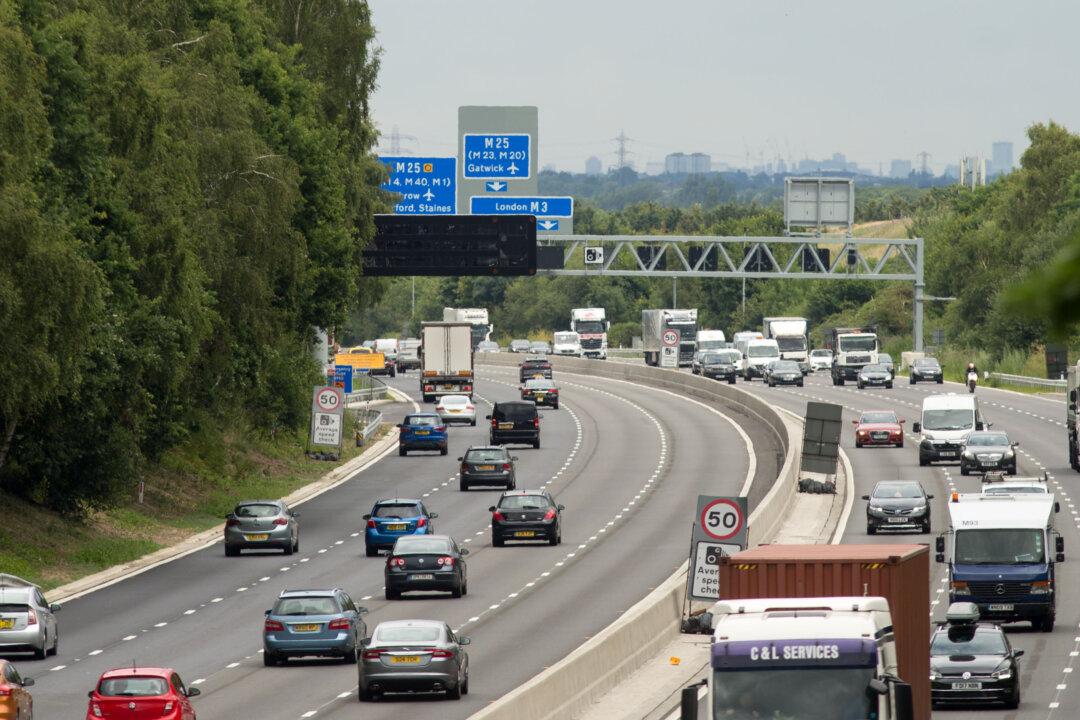The rollout of Britain’s controversial so-called smart motorways should be put on hold due to safety concerns, says a committee of MPs.
A report by the Commons Transport Select Committee (TSC) published on Nov. 2 said that more data is needed on safety and economics.





